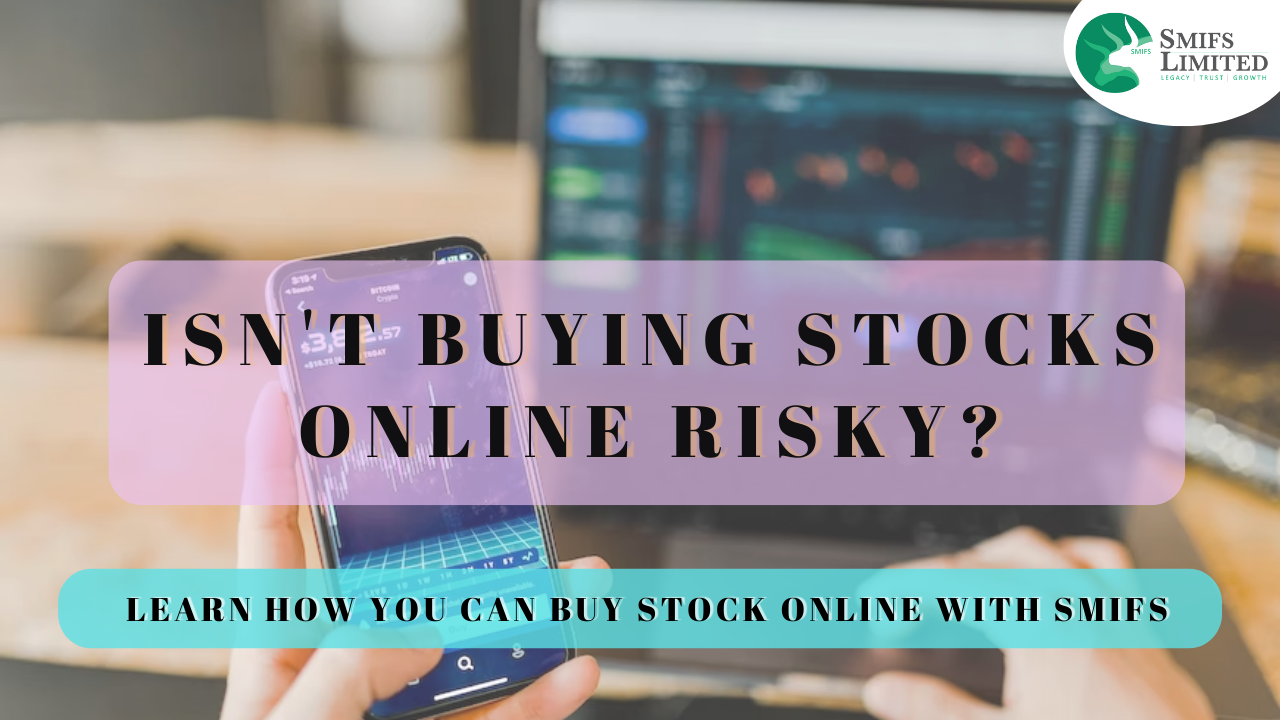Although investing in the stock market may be a lucrative and interesting experience, it can be a little intimidating for beginners. However, with the correct information and a well-thought-out plan, you can definitely navigate the Indian stock market.
In this comprehensive guide, we’ll explore the fundamentals of stock market investment in India and equip you with the essential knowledge to get started. We’ll use information from the National Stock Exchange of India (NSE) to help you get started on your investment journey.
Understanding the Stock Market
-
What is a stock market?
The stock market is a place where individuals and institutions buy and sell shares (equity) of publicly traded companies. When you own a share of a company’s stock, you become a part-owner of that company.
-
Why should you invest?
Ideally, you should set aside a sizable amount of your income for savings. You spend a portion of your earnings and save the remainder for future needs. However, do you know that you can actually profit from your savings (if not kept idle)?
Nowadays, there are numerous methods to invest in some of the top schemes and investment options on the market. In this way, you can park your savings with investment plans in the hopes that they will eventually yield good financial returns.
Below, we have mentioned 3 reasons why you should invest.
- Make a plan for the uncertain future.
- Earning a return on the invested money.
- We can fetch returns from our saved/unused resources.
-
When should I start investing?
- Investing early
- Investing regularly
- Investing for a longer period.
The above-mentioned pointers can be considered the golden rules of investing.
It requires time and patience to build money and obtain returns on investment.
Although there’s never a bad time to start this journey, Investing early allows your money to grow over an extended period of time. Long-term funds benefit from an increase in value as a result of compounding. This occurs when a main balance accumulates and interest and/or dividends are paid out annually.
-
Who are stock brokers?
On a stock exchange, an investor cannot immediately purchase or sell shares. Stock brokers are individuals who are registered members of a stock exchange. They make trades on behalf of investors. They work for a brokerage firm or independently as a service provider
A broker in the stock market scenario is also called a Trading Member. You may trust the expertise and judgment of a stockbroker, as they are acquainted with the market’s formalities. They may help you make the best choices possible in the marketplace.
-
Who is SEBI?
Like all other entities, the stock market in India is controlled by the Securities and Exchange Board of India (SEBI). SEBI regulates all market intermediaries and also has the power to impose sanctions for any kind of fraudulent practice. SEBI was set up in 1992 to protect the interests of investors, intermediaries, and issuers against any sort of unjust practice.
-
Which are the two most important stock exchanges in our country?
The National Stock Exchange (NSE) and the Bombay Stock Exchange (BSE) are the two major stock exchanges in our country.
-
What are the market timings ?
| Segment | Timings |
| Commodity | 09:00 am–11:55 pm |
| Currency | 09:00 am–05:00 am |
| Equity and FNO | 09:15 am – 3:30 am |
| Cross Currency | 09:00 am – 07:30 pm |
Getting Started
Now let’s go into the specifics of beginning your stock market investing career.
Building your own knowledge
Your own research never goes in vain. Both seasoned and new investors should educate themselves. There’s nothing more important than self-education. Doing your own research by reading books, blogs, or listening to podcasts can be very beneficial for your investment journey. You can even refer to the official website of the NSE or the National Stock Exchange to obtain accurate and appropriate information.
Setting clear goals
It is important to define your investment objectives, i.e., whether you are looking for a long-term or short-term wealth creation plan. Selecting an investing plan will be easier if you know what your objectives are.
Deciding your budget
It is important to make a budget after assessing your financial situation. Before beginning an investment portfolio, make sure you have a high-interest, debt-free emergency fund.
Open a Demat and Trading Account
In order to purchase and sell stocks in India, you must have both a trading account and a Demat (Dematerialized) account. A Demat account holds your securities, whereas a trading account aids in the execution of your transactions. These services are provided by numerous brokerage houses, like Smifs. You must select a reliable organization with user-friendly systems. Smifs Limited is one such SEBI-registered full-service stockbroker.
Your securities will be digitally stored in the Demat account. To open a new Demat account, you will require the following paperwork:
- A passport-size photograph.
- A copy of your PAN card
- Identity proof such as an Aadhaar card, passport, voter ID card, driving license, PAN card, or any other authorized photo identity.
- Address proof such as ration card, passport, voter ID card, driver’s license, bank passbook, electricity bill, self-declaration from the High Court or Supreme Court, identity card, or address proof given by a recognized authority
Your Demat account is opened once you submit the necessary paperwork and it is validated.
Your bank account and Demat are connected via a trading account (which is opened by a stock broker).
The initial step after purchasing a specific quantity of shares is to move the funds from the bank account to the trading account. The transaction is started as soon as the funds are credited.
Moreover, the Demat account and trading account are created simultaneously. To open a trading account, the following paperwork must be submitted:
- A passport-size photograph.
- A copy of your PAN card
- Identity proof such as an Aadhaar card, passport, voter ID card, driving license, PAN card, or any other authorized photo identity
- Address proof such as ration card, passport, voter ID card, driving license, bank passbook, electricity bill, self-declaration from the High Court or Supreme Court, identity card, or address proof given by recognized authority
Complete KYC Formalities
The broker and you enter into an agreement using the KYC, or Know Your Client, application form. You must provide your broker with the documents needed to complete and verify your KYC process.
Follow the guidelines for Know Your Customer (KYC). This entails providing your broker with documentation of identification and address.
The following are some significant rules that apply to the KYC form and that you should take into account:
- Common KYC form for all investment types registered at the stock exchange.
- A similar set of documents for KYC of all kinds of investment types.
- There are two different forms for individual and non-individual investors.
- Complete the KYC form in all respects and strike off the blank fields.
- Do not sign an empty form.
- Cross out any page that you leave blank.
- Know the documents required to be submitted to your broker.
The following documents are required to complete the KYC process:
- Identity proof such as Aadhaar, Passport, Voter ID, Driving License, PAN, or any other authorized photo identity
- A latest passport-size photograph
- Address proof such as a Ration Card, Passport, Voter ID, Driving License, Bank Passbook, Electricity Bill, self-declaration from the High Court or Supreme Court, or any other identity card, or Address Proof, issued by a recognized authority



